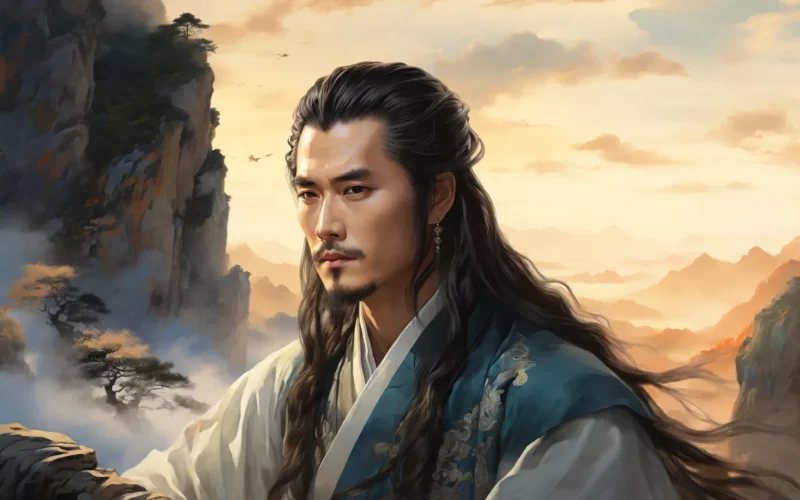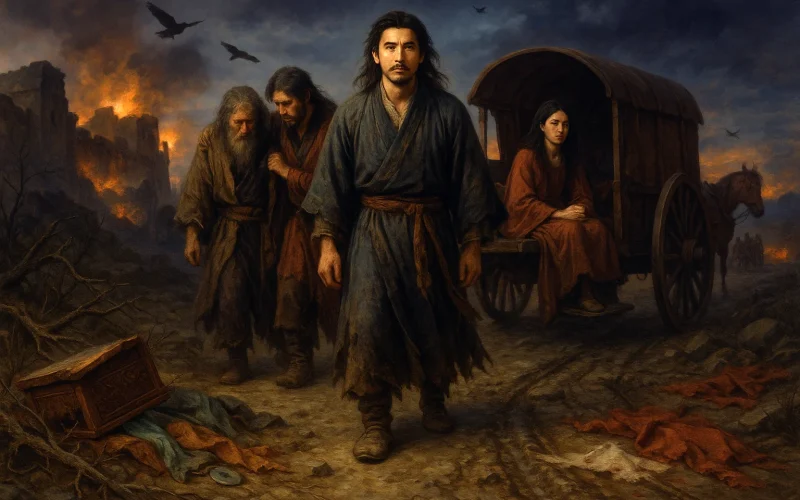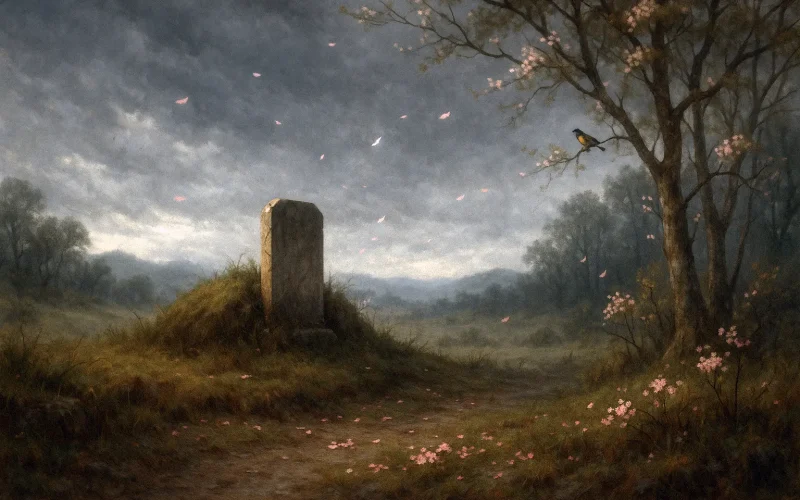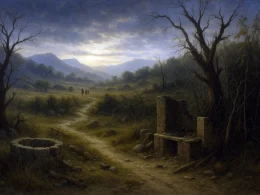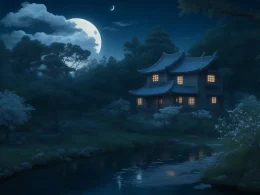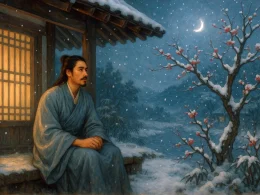The Three Kingdoms, divided, have been bound by his greatness.
The Eight-Sided Fortress is founded on his fame;
Beside the changing river, it stands stony as his grief
That he never conquered the Kingdom of Wu.
Original Poem:
「八阵图」
杜甫
功盖三分国, 名成八阵图。
江流石不转, 遗恨失吞吴。
Interpretation:
This poem was written in the first year of the Dali reign (766) during the reign of Emperor Daizong of the Tang Dynasty, when Du Fu first arrived in Kuizhou (present-day Fengjie, Chongqing). Facing the historical relics, he was moved by Zhuge Liang’s remarkable achievements and composed this poem. It is both a tribute to Zhuge Liang’s extraordinary talent and an expression of deep regret that the Shu Han state failed to unify the realm.
First Couplet: "功盖三分国,名成八阵图。"
gōng gài sān fēn guó, míng chéng bā zhèn tú.
Your achievements surpassed the Three Kingdoms, and your name was immortalized through the Eightfold Battle Formation.
The opening couplet succinctly encapsulates Zhuge Liang’s immense contributions. He assisted Liu Bei in founding Shu Han, shaping the tripartite division of the land with unparalleled brilliance. Furthermore, his creation of the Eightfold Battle Formation, a military marvel, became a legendary testament to his strategic genius and foresight.
Second Couplet: "江流石不转,遗恨失吞吴。"
jiāng liú shí bù zhuǎn, yí hèn shī tūn wú.
The great river rushes forward, while the steadfast rocks remain unmoved—yet it is sorrowful that Wu was never conquered.
The latter couplet uses natural imagery to convey historical regret. The ever-flowing river contrasts with the immovable rocks, symbolizing Zhuge Liang’s unwavering loyalty and perseverance. However, he ultimately failed to achieve unification, especially as Liu Bei, in his rage over Guan Yu’s death, launched a campaign against Wu, shattering the alliance against Wei. This strategic misstep placed Shu Han in a precarious position, becoming an eternal regret in history.
Overall Appreciation
In this poem, Du Fu employs highly condensed language to summarize Zhuge Liang’s outstanding accomplishments and military prowess while also expressing profound historical lament. By invoking the symbolic Eightfold Battle Formation, he conveys admiration for Zhuge Liang’s wisdom. The phrase “遗恨失吞吴” ("regretfully failing to conquer Wu") highlights a pivotal historical turning point, underscoring the fatal consequences of Liu Bei’s misguided decision. This contemplation of the rise and fall of a state gives the poem remarkable historical depth.
Writing Characteristics
The poem is concise yet powerful, seamlessly integrating narration and commentary while building momentum. It transitions from praising Zhuge Liang’s achievements to describing the enduring legacy of the Eightfold Battle Formation, before ultimately lamenting the course of history. The emotions shift from admiration to sorrow, creating a dramatic arc. Du Fu masterfully condenses the complexity of the Three Kingdoms era into just four lines, achieving an expression of immense depth and intensity.
Insights
This poem is not only a tribute to Zhuge Liang’s brilliance but also a profound reflection on historical lessons. Liu Bei’s impulsive decision to attack Wu, driven by anger, disrupted a carefully crafted strategic balance and led to Shu Han’s decline—a mistake worth pondering. Through his poetry, Du Fu serves as a mirror for later generations, reminding us that every action should be guided by the greater good rather than momentary emotions. Additionally, the imagery of the "great river flowing while the stone remains unmoved" reminds us that, regardless of changing circumstances, true conviction and loyalty can withstand the test of time and remain ever-lasting.
Poem translator:
Kiang Kanghu
About the poet
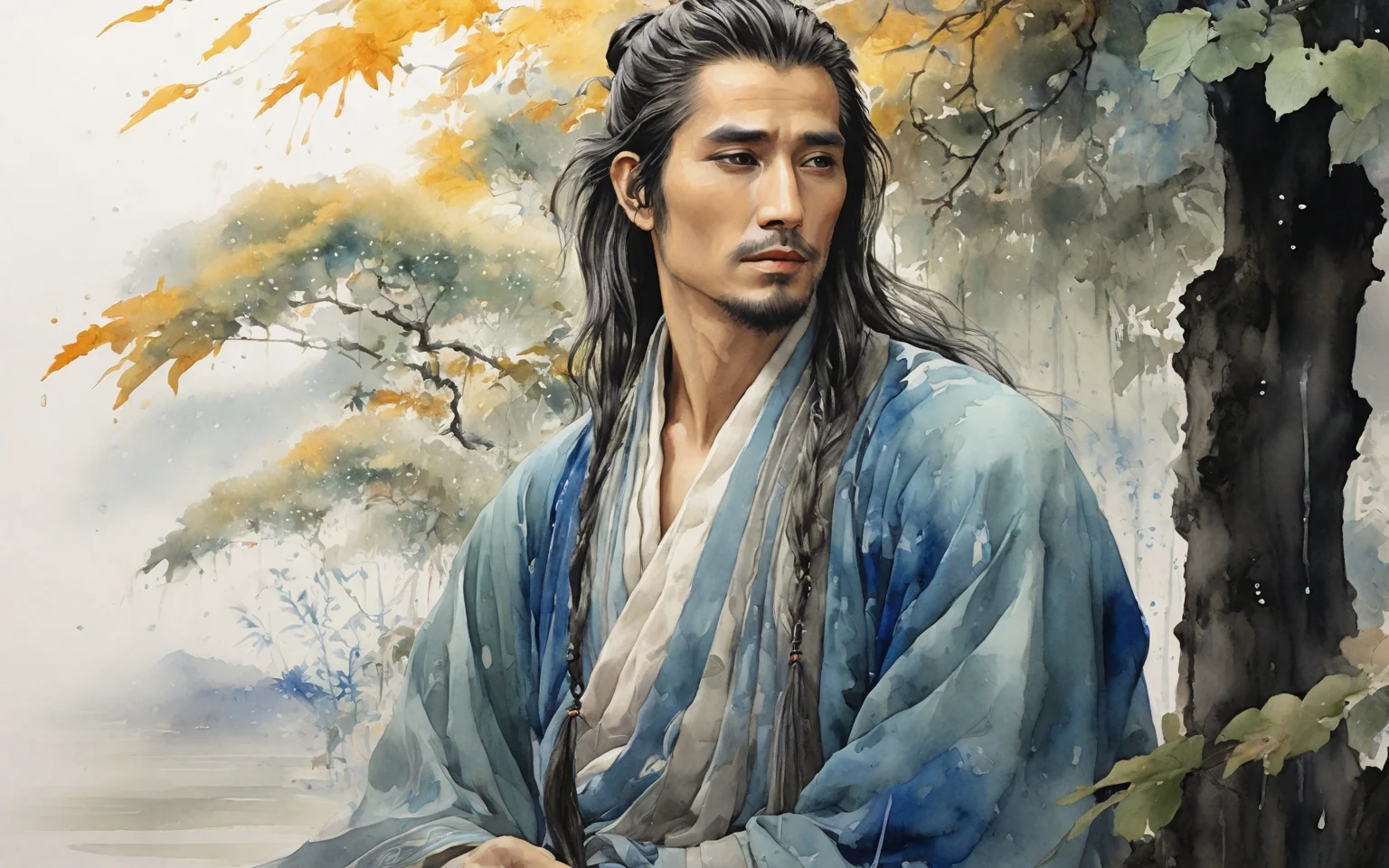
Du Fu (杜甫), 712 - 770 AD, was a great poet of the Tang Dynasty, known as the "Sage of Poetry". Born into a declining bureaucratic family, Du Fu had a rough life, and his turbulent and dislocated life made him keenly aware of the plight of the masses. Therefore, his poems were always closely related to the current affairs, reflecting the social life of that era in a more comprehensive way, with profound thoughts and a broad realm. In his poetic art, he was able to combine many styles, forming a unique style of "profound and thick", and becoming a great realist poet in the history of China.






